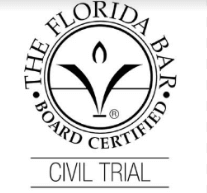Table of Contents
Facing a health condition that disrupts your ability to work isn’t just a legal issue; it’s a life shift. For residents in Plantation, Florida, this circumstance brings questions, such as: “How do I protect my future? Where do I turn when income stops but bills keep coming? How do I make sense of a system that hardly explains itself?”
When disability makes daily life harder than it should be, Social Security Disability benefits can provide relief. These provisions help people who can’t work because of a qualifying disability. But understanding which benefit fits your situation and winning your claim calls for detailed knowledge and strong advocacy.
At Kogan & DiSalvo, we offer guidance designed for moments like these. Whether you’re applying for the first time or trying to appeal a denial, our team helps people move forward with confidence. We don’t just handle the process; we lighten the weight of uncertainty.

SSD, SSDI, and SSI: Making Sense of the Basics
Navigating disability benefits can feel overwhelming, especially when the system uses similar-sounding terms for very different programs.
Social Security Disability (SSD) is a general term people use when referring to disability benefits from the Social Security Administration. It actually includes two separate programs: SSDI and SSI.
Social Security Disability Insurance (SSDI) supports individuals who have worked and paid into the Social Security system through their jobs. If you have a qualifying medical condition and sufficient work history, SSDI can provide monthly income.
Supplemental Security Income (SSI) is for individuals who are disabled and have very limited income and assets. You don’t need work history to qualify, but you must meet strict financial limits. SSI typically provides a lower monthly amount than SSDI, and it includes Medicaid health coverage.
In some cases, individuals qualify for both SSDI and SSI, particularly if their SSDI benefit is low due to limited past wages.
How SSD Benefits Can Help You
Disability doesn’t always show up the same way. Regardless of how it happens, the impact of a severe disability on someone’s life can be profound physically, mentally, emotionally, and financially.
That’s why SSD benefits exist: to provide a degree of stability and dignity when physical or mental health no longer allows someone to earn a living.
SSD covers a wide range of physical and mental impairments, including:
- Blindness
- Back injuries, arthritis, and other musculoskeletal conditions
- Epilepsy, multiple sclerosis, and other neurological disorders
- Cardiovascular conditions such as heart disease
- Certain respiratory disorders
- Psychiatric illnesses like depression, schizophrenia, and bipolar I, II, or III disorder
Social Security Disability benefits were designed to ease burdens like:
- Medical expenses
- Daily living costs
- Continued care and support for dependents
- Food, housing, and utilities
- Ongoing medical care
- Support for dependents
Having a diagnosis alone isn’t enough. First-time applications are often denied because the system requires precise documentation and strict adherence to criteria.
Before granting benefits, the Social Security Administration evaluates:
- When a claimant’s blindness or disabling condition(s) began
- How the claimant’s condition(s) limit his or her life and activities
- The results of medical tests and the types of treatments a claimant has received
- Whether the condition truly limits a claimant’s ability to perform substantial work
- Whether or not the medical condition is listed, or as severe as those listed, in the Social Security Administration’s “Listing of Impairments”
- Whether or not the disability is expected to last at least 1 year or result in loss of life
- Whether or not the applicant has earned sufficient “work credits” based on his or her employment history
To pursue a successful claim, you need strong medical evidence, consistent treatment records, and professional advocacy.
Common Challenges in Social Security Disability Claims
The Social Security Administration (SSA) applies strict standards when determining SSDI and SSI eligibility. Even honest, deserving applicants may be denied at first. The process can be confusing, frustrating, and surprisingly unforgiving.
Applicants frequently encounter issues like:
- Missing or incomplete medical records
- Errors or gaps in work history documentation
- Misunderstandings about eligibility and procedural steps
- Misinterpretation of symptoms or functional limitations
- Insufficient explanation of how the disability affects employment
After an initial denial, applicants may also face long wait times and unclear instructions about the next steps. These delays can add unnecessary stress during an already difficult time.
Personal injury and SSDI
In most cases, receiving a personal injury settlement does not impact Social Security Disability Insurance (SSDI) benefits. However, those receiving Supplemental Security Income (SSI) (which is based on financial need) may see their benefits reduced or suspended based on settlement proceeds.
If you receive both types of support, you’ll have to plan carefully to preserve your eligibility.
Workers’ compensation coordination
If you are receiving Social Security Disability Insurance and Florida workers’ compensation simultaneously, your total combined benefits may not exceed 80 percent of your average pre-injury earnings. The Social Security Administration may reduce the SSDI payouts to stay within that limit.
Appealing a Denial
Denial isn’t the end of the road. After a denial, the SSA will send a letter explaining why. You have options to appeal, but the window to act is short.
You have three main appeal steps:
- Reconsideration: After a denial, applicants have a limited number of days to seek reconsideration. This review allows for the submission of new evidence.
- Administrative Law Judge (ALJ) hearing: If reconsideration is denied, you may request a hearing before an ALJ. While you can represent yourself, more successful outcomes come from preparation and professional representation.
- Appeals Council review: If the ALJ denies your case, you can ask the SSA Appeals Council to review the decision, but most positive outcomes occur at the hearing stage.
Each stage of the appeals process carries its own complexities, but we guide our clients through them with calm, step-by-step support. Whether it’s gathering additional medical documentation or preparing clear testimony, we remain focused on the goal: getting our clients the benefits they deserve.
What Our Social Security Disability Advocates Can Do for You
You don’t have to face the Social Security Disability system alone. A seasoned lawyer can simplify the process, answer all your questions, and strengthen your application with the clarity it needs.
When we take on an SSD case, we provide:
- Personalized communication: In a system often marked by delay and impersonal responses, our clients appreciate that we speak clearly, respond quickly, and offer steadfast support without making the process harder than it needs to be.
- Offering ongoing communication throughout the process: We make sure every client understands his or her options, the reasoning behind each legal step, and the estimated timeline.
- A strategy that reflects your needs: At Kogan & DiSalvo, our Social Security Disability lawyers don’t believe in one-size-fits-all representation. We care about our clients’ futures, not just the cold, hard legal facts. That’s why we personalize our legal approaches to meet your needs.
You Deserve to Be Heard and We’re Here to Help
You shouldn’t have to navigate the Social Security Disability system alone. Whether you’re just getting started or facing a tough appeal, our attorneys at Kogan & DiSalvo are here to guide you with clarity, compassion, and commitment.
We bring more than legal experience to the table. We bring a genuine drive to help our clients move forward, reclaim control, and secure the benefits they have earned. Because this isn’t just about a claim – it’s about your life, dignity, and future.
If you are feeling overwhelmed or uncertain about what comes next, contact us today to schedule a free consultation. You deserve a legal team that fights for the future you have worked so hard to build.







